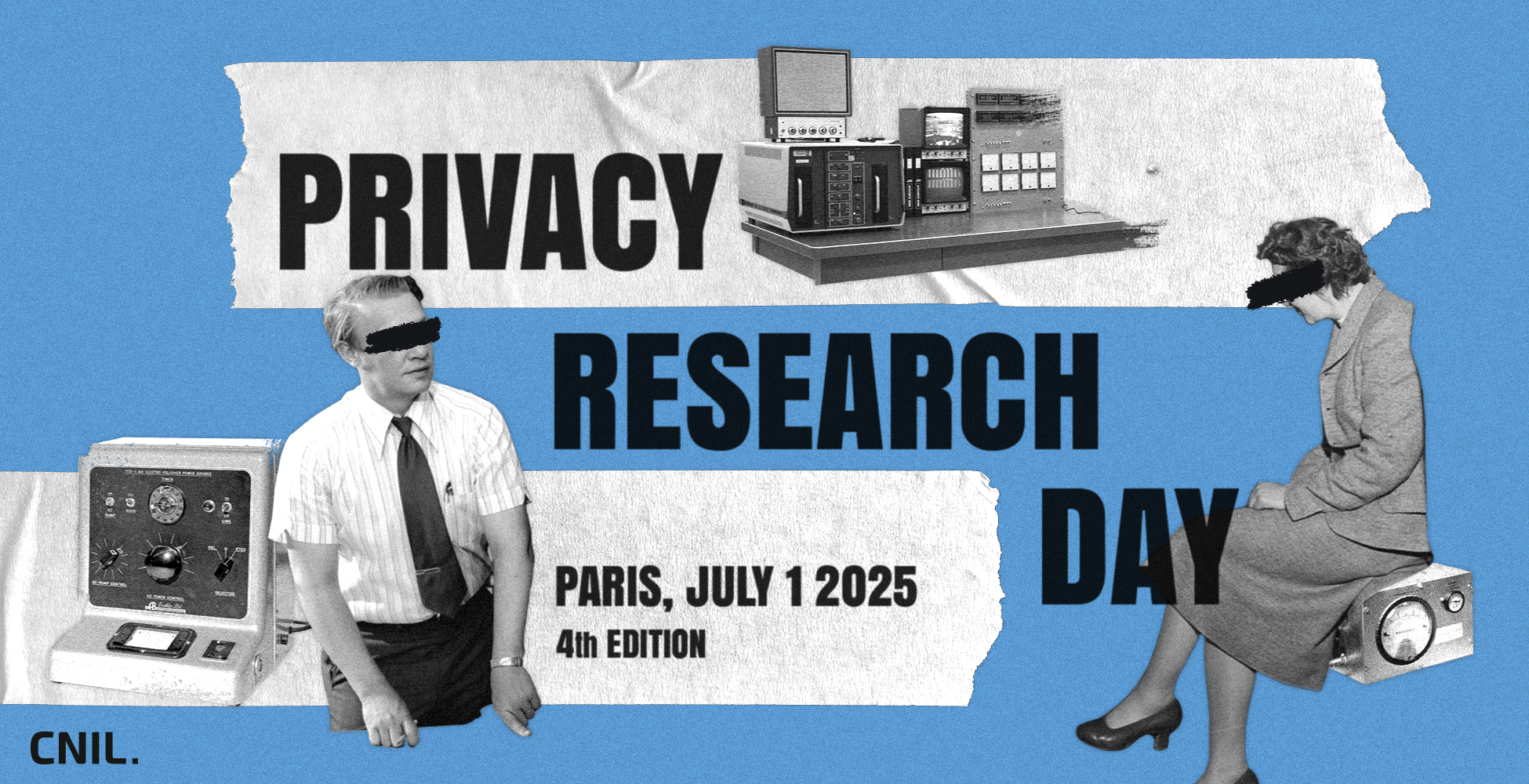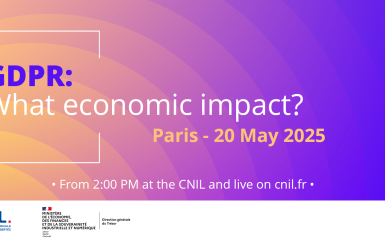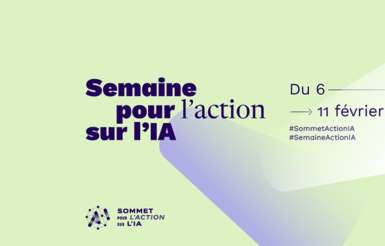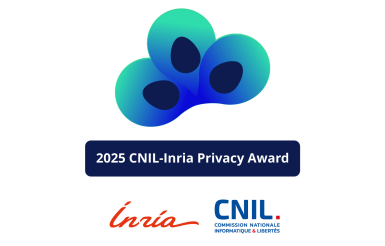Privacy Research Day 2025: discover the program of the 4th edition
The 4th edition of the CNIL's Privacy Research Day will be held on July 1st 2025, at the CNIL in Paris and online. This event bridges the gap between the academic world and data regulation, and is aimed at practitioners, academics, and public authorities.

Privacy Research Day: a major academic conference on data protection
The Privacy Research Day is an opportunity to build bridges between researchers from all disciplines and regulators. During the conference, experts from different fields will present their work and discuss its implications for regulation - and vice versa.
This interdisciplinary day is aimed at a wide audience familiar with privacy and data protection. Our objective is to create an exchange between legal experts, IT specialists, designers and social science researchers.
This event will also enable participants to discover innovative research: new challenges, new vulnerabilities and new solutions will be presented.
At last, the Privacy Research Day is an opportunity to create lasting partnerships between academia, the CNIL and other public bodies.
Tuesday July 1st 2025 from 9AM to 5.30PM
at the CNIL and online
You will be able to follow the event in its original version (English) or with simultaneous translation into French.
Program
Program in preparation. The names of the speakers will soon be posted online.
9 h 00 – 9 h 15
Introduction
9 h 9h15 – 10 h 20
Panel 1: Protecting Data in the Age of Social Media
Social media has become a preferred means of communication, an extension of our intimate sphere, while simultaneously raising increasing distrust regarding the security of our personal information. What are users' expectations on social media? How do they perceive the protection of their data and privacy? How can researchers, particularly in the context of the Digital Services Act (DSA), use this data? What protection mechanisms should be implemented?"
10 h 20 – 11 h 25
Panel 2: User Risk Perceptions and Strategies
User perceptions play a significant role in their behavior and the strategies they employ to respond to situations. What measures do users take to protect their privacy? How can we equip diverse audiences and meet their expectations? What risks do people overestimate or underestimate? How does the perception of these risks influence their behavior and strategies?
11 h 25 – 11 h 40
Break
11 h 40 – 12 h 45
Panel 3: Limits and Levers of Transnational Compliance
Despite the extraterritorial reach of regulations like the GDPR, ensuring consistent global data protection remains arduous. Varying definitions of essential terms (personal data, anonymization, PETs) constitute a major impediment. What assessment can be made of international compliance efforts? What legal levers could individuals use to exercise their rights? What are the divergences in definitions between the different concepts related to data protection technologies? How do these divergences hinder the implementation of the law?
13 h 00 – 14 h 15
Lunch break
14 h 15 – 14 h 40
Presentation of the 9th CNIL-Inria Prize and presentation of the winner
14 h 40 – 16 h 00
Panel 4: Data Protection Challenges in the AI era
Artificial intelligence systems are proliferating, offering immense potential but also risks of misuse or problematic applications. Therefore, documenting, analyzing, and auditing these systems are paramount. What specific problems are generated by the development of AI systems? What tools can be used to audit these systems and their use? How can countermeasures be developed to limit the risks these systems pose?
16 h 00 – 16 h 15
Break
16 h 15 – 17 h 20
Panel 5: Protecting Health Data
Because they are essential for personalized care, medical research, and improving public health systems, health data are increasingly digitized, shared, and analyzed. This digitalization opens up tremendous opportunities, but also exposes this sensitive information to new risks: cyberattacks, misuse, and confidentiality breaches.
How, then, can we reconcile the immense potential of this data with the absolute imperative of protecting patient privacy and ensuring trust? How is the health data protection framework specifically evolving? How can we inform the diverse individuals whose health data is collected? What are the perceived risks in using menstruation tracking applications, especially following the questioning of certain rights (such as the right to abortion)?
17 h 20 – 17 h 30
Presentation of the 1st CNIL-EHESS Prize
17 h 30
Closing words



